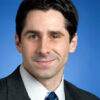Duke Daytime MBA Student Blog

Lessons in Leadership
As an institution, Fuqua has embraced those alumni who have sought to apply its unique leadership principles beyond the walls of Breeden Hall. Few graduates, though, have exemplified the Fuqua spirit in corporate America to such an extent as Bruce Johnson, Interim CEO of Sears Holding Corporation. By his own admission, Sears was in a state of disarray when he was called upon to lead the company in 2008, and by emphasizing some of the management and strategic tenets inherent in the Fuqua curriculum, he has successfully designed a new, more sustainable model that has Sears primed for renewed prosperity.
During his talk, Mr. Johnson, a graduate of Fuqua, the Law School, and the undergrad school, hoped to forecast what the future of leadership in Corporate America looks like, and to do so, ironically, he discussed what the world looked like when he graduated from Fuqua in 1977. He discussed bygone relics such as old-school Macs, CB Radios, and China as an emerging economy, and reasoned that if that seems ancient, the world is going to be unrecognizable when we become prominent business leaders, as technology has unapologetically increased the rate of flux. He suggested that a skillful leader will always be cognizant of changes in how commerce operates, but will be driven by an unchanging set of underlying principles that can serve as a compass during times of trial.
More important still, he asserted to the crowd, was the value of independent thought in corporate leadership. Reflecting on Sears’ resurgence, he attributed it to actions taken by the company in 2008. The herd mentality of the market during that time tempted Sears to conserve cash and go into survival mode, but the company, by contrast, saw a weakening competitive landscape and identified it as an ideal time to invest in new media technologies while still implementing restrictive financial policies on business units that were unable to keep up with a changing economy. Indeed, when the smoke cleared, the American consumer had begun to regard Sears as a pioneer in many of the cutting edge technologies that were altering the face of this industry.
Finally, Mr. Johnson implored us to always be mindful of the people we choose in building organizations. He felt that many great organizations have fallen as a result of having the wrong people in the wrong positions, and compelling uniformity in thought and action. He deemed it imperative to foster a culture that attracts and retains top talent, and fosters it through extensive mentoring, training, and coaching. He forecasted that in this corporate world in which technology can cause companies to undergo frequent facelifts, enduring management will be a key driver of success, and adherence to long standing business principles.
In his concluding remarks, Mr. Johnson moved beyond the scope of business, and emphasized the role of balance in living a fulfilling life, and though it wasn’t expressly stated, this sounded like it may have been shaped by his time at Fuqua, as were many of the principles discussed that had rendered him a Leader of Consequence.



